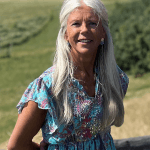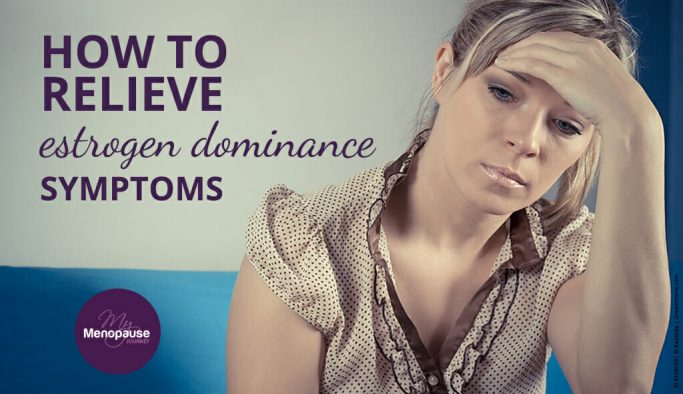I didn’t go through early menopause myself — but I’ve sat with women who have. Women who were in the thick of their 30s, thinking about babies or big careers, when their periods vanished… and didn’t come back.
At first, it’s easy to explain away. You skip a few cycles and think, “Probably stress. Maybe my diet. It’ll sort itself out.”
But then the hot flashes creep in. You stop sleeping well. Your energy tanks. Your body starts sending signals that don’t match your age.
And someone dares to mention menopause — and it feels completely off. Because how could that be happening now?
But sometimes, it is. Early menopause is real, and it doesn’t wait until life feels ready for it. It can knock you sideways — physically, emotionally, and hormonally — just when you were starting to hit your stride.
If you’re here, reading this, maybe something in your body is whispering that something’s off. Or maybe it’s screaming.
You are not imagining this. You’re not overreacting. And you don’t need to navigate it in the dark.
Let’s walk through the real causes of early menopause, the signs to watch for, and what I’ve learned that might help you feel steadier, stronger, and more in sync with your body again.


Table of Contents
What Is Early Menopause?
Menopause typically begins around age 51, but for some, it arrives earlier — before 45.
If it hits before age 40, it’s often called “premature menopause” or “primary ovarian insufficiency” (POI). It means your ovaries stop producing enough estrogen and stop releasing eggs.
This isn’t just a shift in your period though.
It’s a change in your hormones, your fertility, your energy, your mood — often long before you expected!
And if you’re looking for telltale signs that will make you say, “Uh-oh, looks like she really came early,” check out some of them in the next section…
Recognizing Early Menopause — What are the Signs?
- Irregular or missed periods
- Hot flashes and night sweats
- Brain fog and memory lapses
- Low libido and vaginal dryness
- Mood swings or emotional flatness
- Sleep problems and fatigue
- Trouble conceiving
But often, the distress isn’t just physical.
There’s also the emotional side of it.
You know… that fear of lost time. Of plans disrupted.
Of feeling like you’re aging on the inside while everyone around you still feels carefree.
What Early Menopause Feels Like…
It’s more than symptoms. It’s disorientation.
You might still look young but feel like you’re aging fast on the inside.
You may worry about fertility, libido, energy, even the shape of your future.
And the worst part? No one talks about this.
You’re left Googling things late at night, wondering if it’s just you.
But let me tell you right here, right now — it’s not.
And to give you a dash of optimism, there are many proven ways you can find your balance!
The Root Causes of Early Menopause
I know you’re here for answers — not fluff. So, let’s get into the real causes of early menopause; the ones doctors see again and again, and a few that are, well, often missed.
✅ Genetic and Family History
If early menopause runs in your family, your risk increases.
Some women are born with chromosomal conditions that affect ovarian development or hormone production — often unnoticed until symptoms show up.
✅ Autoimmune Disorders
Sometimes, the immune system turns on its own body.
Conditions like Hashimoto’s, lupus, or rheumatoid arthritis can attack the ovaries — disrupting hormone production and triggering early menopause.
✅ Chronic Stress and Burnout
When your nervous system is constantly on alert — from trauma, chronic stress, overworking, or poor sleep — your body may shift into “survival mode.” This can shut down reproductive functions to conserve energy.
✅ Smoking and Environmental Toxins
Nicotine and certain chemicals mimic or block hormones — interfering with estrogen production. Smokers are more likely to experience menopause 1–2 years earlier than non-smokers.
✅ Low Body Weight or Intense Exercise
Your body needs a baseline of fat to make hormones. Being underweight, malnourished, or pushing yourself through extreme workouts can disrupt your cycle and contribute to early ovarian failure.
✅ Medical Treatments and Surgeries
→ Chemotherapy and radiation: Can damage ovarian tissue and disrupt hormone balance.
→ Oophorectomy (removal of ovaries): Causes immediate menopause.
→ Hysterectomy (removal of uterus): May lead to early ovarian shutdown, even if ovaries are left intact.
✅ Epilepsy
Seizure disorders affect the brain’s hormone-regulating centers. Studies show women with epilepsy are at higher risk for early menopause — often a full decade earlier than average.
Health Risks to Be Aware Of…
When estrogen drops early, it can also impact more than fertility.
Bone Health– Estrogen keeps bones dense. Without it, your risk of osteoporosis increases.
Heart Health – Estrogen protects arteries. Early loss can raise your risk of heart disease.
Mental Health – Depression and anxiety often surface during hormonal shifts.
How Early Menopause Is Diagnosed
It’s not always a quick answer. Your doctor will likely check for:
- Missing periods (usually 4+ months)
- Elevated FSH (Follicle-Stimulating Hormone)
- Low estrogen
- Low AMH (Anti-Müllerian Hormone, which indicates ovarian reserve)
Other tests might also include progesterone, LH (luteinizing hormone), and thyroid panels to rule out other hormone-related issues.
Taking Back Your Power: What You Can Do
You can’t reverse time. But you can support your body — and your emotional health — in ways that change everything!
As cliche as this may sound, small steps can lead to BIG results. I can personally attest to that! Here are natural ways you can boost your hormonal health and overall midlife wellness:
1. Focus on Real Food
Nourish your hormones with whole, organic food. Ditch the processed snacks and fake energy boosters!
Add phytoestrogens — like flaxseed, fermented soy and hormone-supportive herbs.
Superfoods like maca, seaweed, and spirulina can also help!
2. Move Gently and Often
Forget punishment workouts. What your body needs now is circulation, oxygen and balance!
Think walking, yoga, tai chi, Pilates and strength training for bone support. Every movement counts!
3. Give Your Mind Some Room
Write things down. Breathe and meditate. End social connections that drain you more than they lift your spirits up!
Early menopause can feel like a quiet kind of grief — especially around fertility, identity, or sexuality. It’s okay to name what you’re feeling! It’s not too much.
4. Reignite Intimacy
You may feel disconnected from your desire… but that doesn’t mean it’s gone.
Estrogen changes affect vaginal tissue and sensitivity — but natural lubes, communication and exploration can rebuild closeness. Hormone therapy or vaginal estrogen may help, too.
5. Explore Fertility Options
If having children is still part of your current timeline in life, talking to a specialist would be a great path to take.
Egg freezing, IVF with donor eggs, and adoption are all possibilities.
They’re not backups — they’re valid, beautiful options!
Final Thoughts: When the Timeline Changes
Maybe you expected to start a family in your late 30s.
Maybe you thought menopause was a decade away.
Maybe no one ever told you this was even possible.
But it is. And it’s happening.
And you don’t need to power through it alone.
You need nourishment. Guidance. Rest.
And a new way of relating to your body — not as something broken, but as something that’s asking for deeper care.
This is your next chapter.
Yes, perhaps it wasn’t planned — but it’s still yours to write.
References:
pmc.ncbi.nlm.nih.gov/articles/PMC2818554/
pmc.ncbi.nlm.nih.gov/articles/PMC5888979/
ncbi.nlm.nih.gov/pmc/articles/PMC3634232/
menopause.org.au/hp/management/early-menopause
menopause.org/for-women/expert-answers-to-frequently-asked-questions-about-menopause/perimenopause-premature-menopause-faqs
👉 What to Do Next
Don’t go just yet — especially if you’ve been feeling off and no one’s given you real answers.
Go to the START HERE page.
It’s where things begin to feel clearer. No more second-guessing, no more sorting through conflicting advice. Just calm, honest support for where you are right now.
And if you haven’t yet, download the FREE GUIDE.
It’s quick, clear, and made to help you feel better — without having to turn your whole life upside down.


Gita is the founder of My Menopause Journey. Since 2014, she has been supporting midlife women by sharing hard-earned learnings from her own experience. To advance her knowledge, Gita puts a lot of her time and effort into understanding the broad spectrum of women’s health. She immerses in extensive research about the physical, mental and emotional aspects of menopause. Gita believes in the life-changing power of healthy, holistic living — this is where she anchors her message to all women. Learn more about her marvelous mission in About us - My Menopause Journey.







I don’t think anyone enjoys getting older. They signs and problems of aging are, I’m sure, difficult to grasp at times. Menopause is a sign that your body is changing and is not the same as it once was. Knowing what to look for and how to treat menopause is a good idea. Knowing what the symptoms are can help you in realizing that menopause could be the likely culprit!